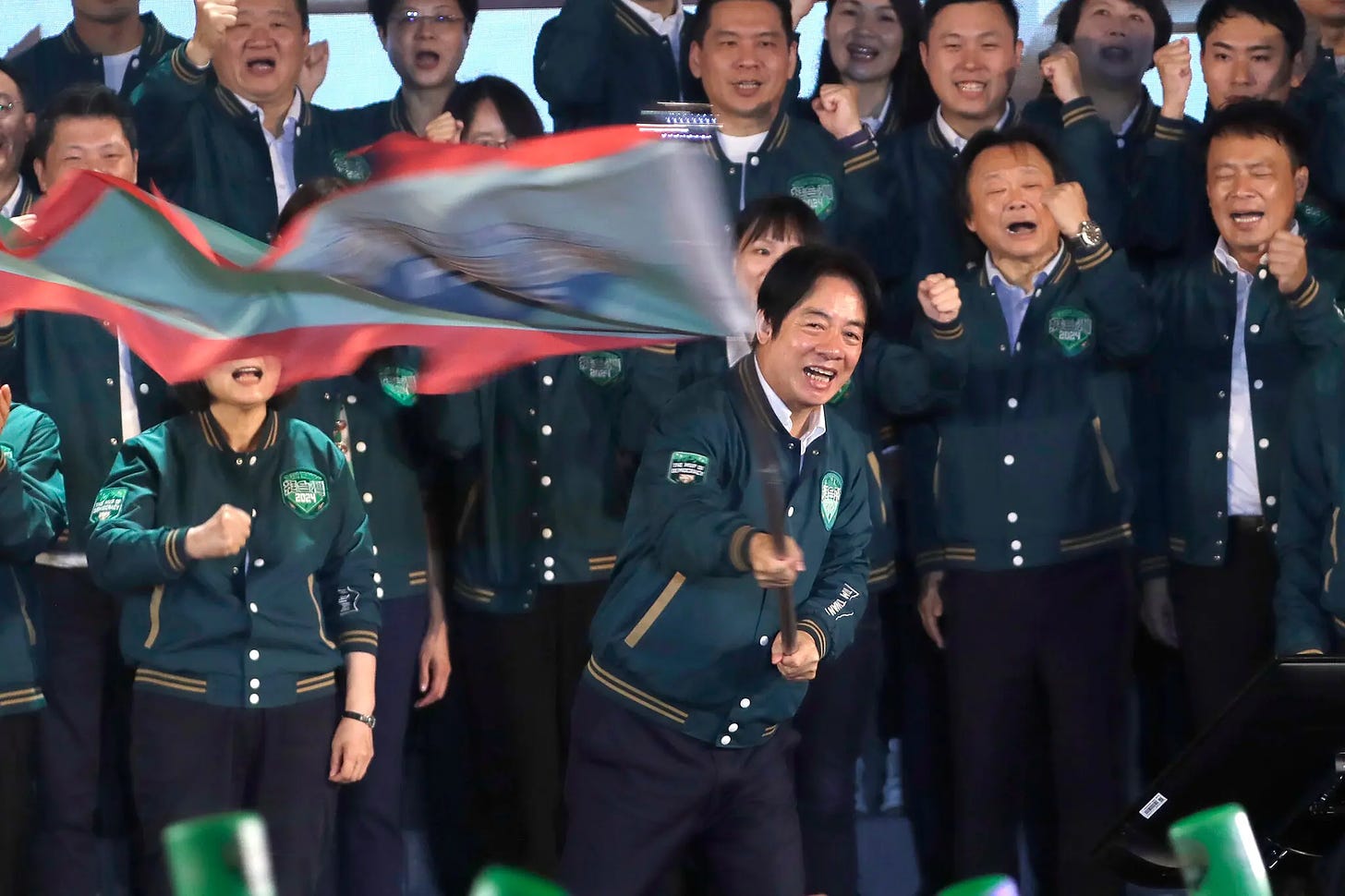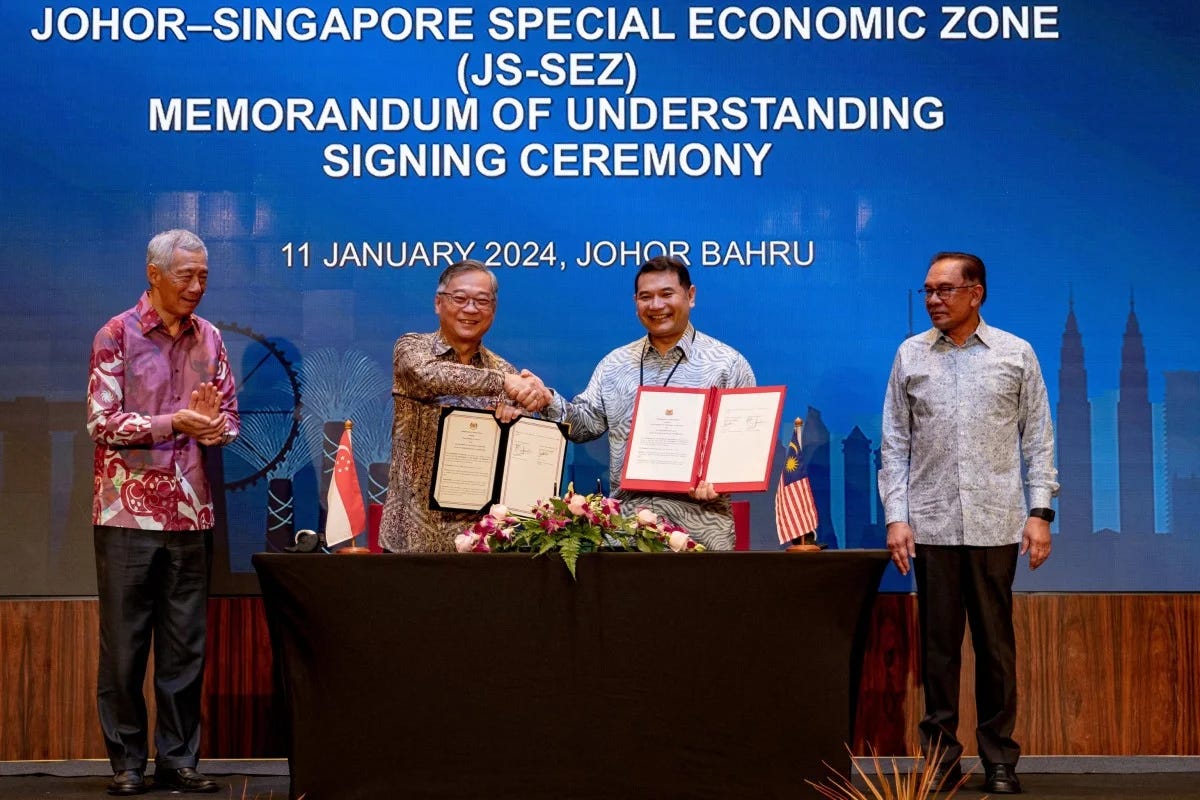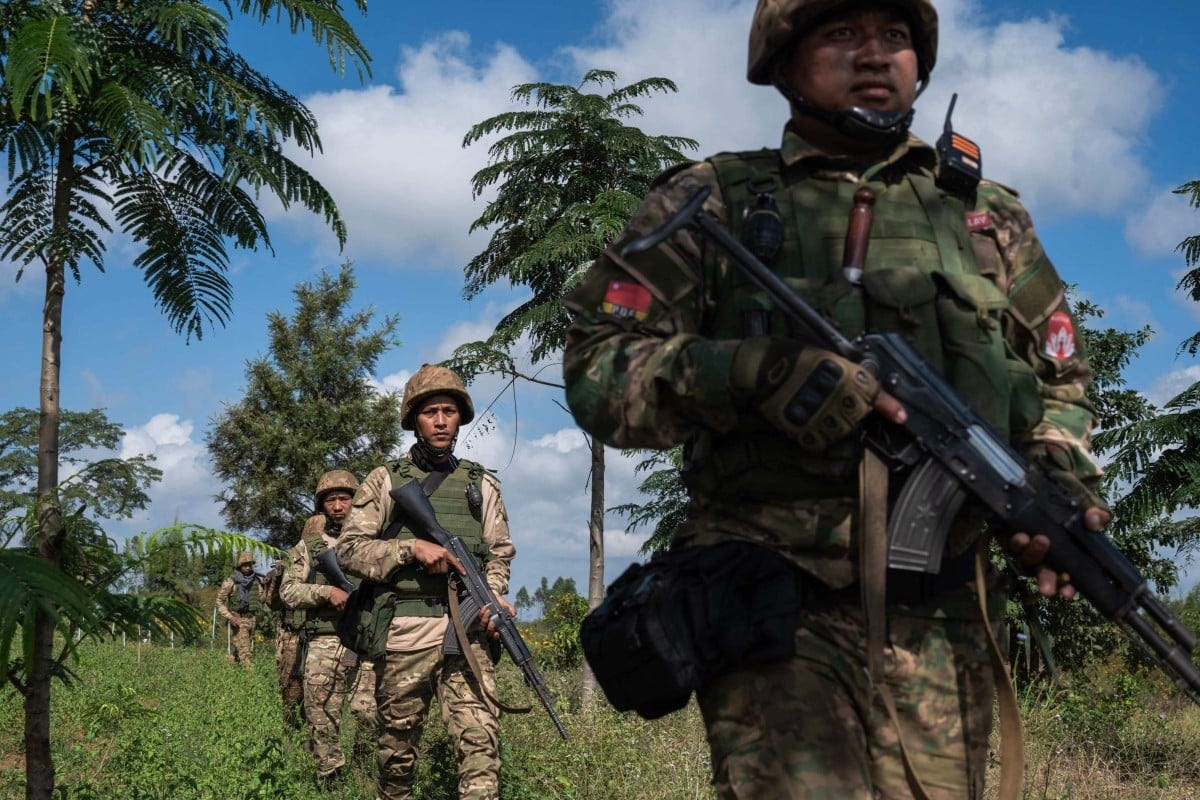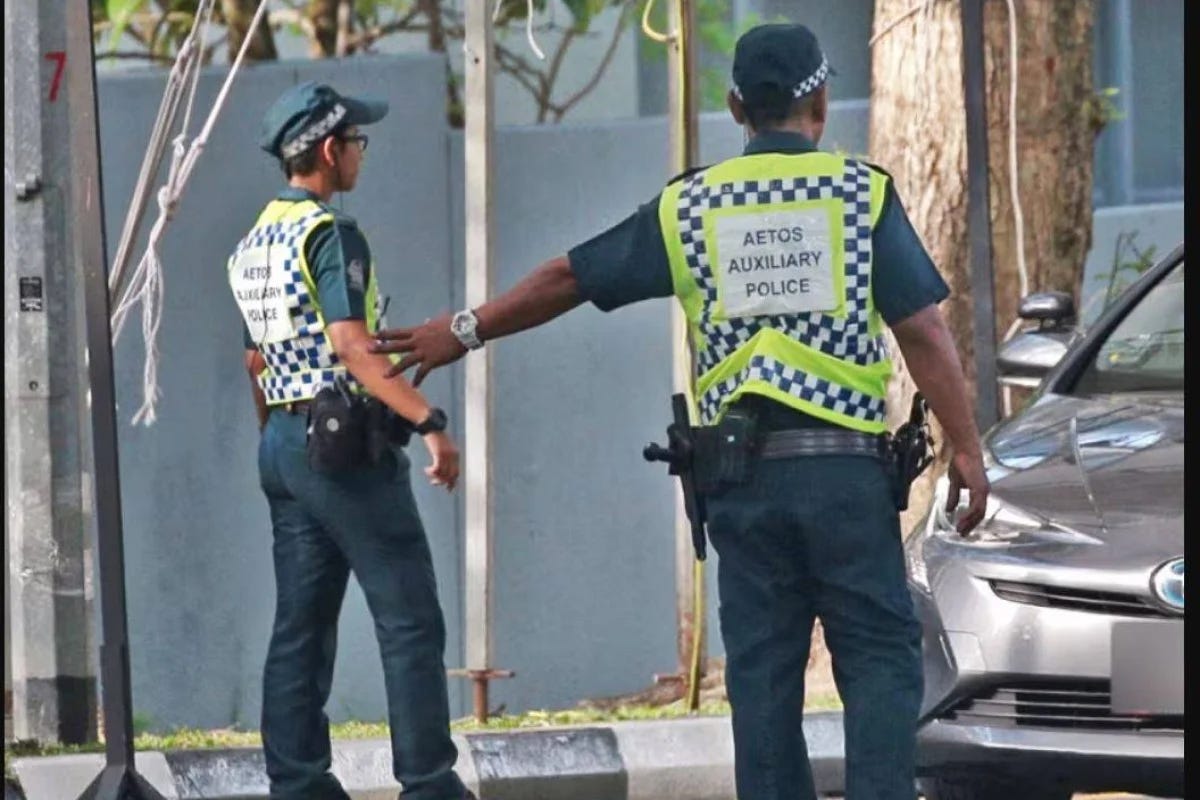SEA & World Briefs (12 Jan): Singapore/Malaysia agreed on special economic zone; Taiwan’s election; Myanmar’s shadow government goes for China’s support
Welcome to Friday, reader!
The second week of 2024 is coming to an end, and the holiday mode is suppressed until Chinese New Year for many of us here.
For today’s edition, major developments are in the upcoming Taiwan’s election and the regional implications, especially with China, which is still committed to unifying Taiwan. Besides that, we have Myanmar's shadow government trying to lobby support from China. Lastly, Singapore/Malaysia have agreed to revitalize their special economic zone.
Let’s get right into it, and have a great weekend ahead!
Tables of Contens and Summaries
Geopolitics/World Stories
🗳️ Taiwan's Election: A Crucial Moment for Cross-Strait Relations
Taiwan's election is critical for its future relations with China and the U.S., with candidates offering different strategies for engaging Beijing and voters focusing on both domestic and cross-strait issues.
🌏 Myanmar's Shadow Government Seeks Chinese Support Against Junta
Myanmar's NUG is seeking China's support against the junta, emphasizing collaboration on investments and cross-border crime, amid China's concerns over stability and junta's diminishing control.
🌍 Passport Power Shift: European Countries Join Singapore and Japan at the Top
European nations France, Germany, Italy, and Spain reach the top of the Henley Passport Index, showcasing a significant shift in global travel freedom and growing passport power disparities.
Regional Social/Economic Stories
🏙️ Malaysia and Singapore Collaborate to Revitalize Forest City Development
Malaysia and Singapore's leaders unite to boost the Forest City project with plans for a special economic zone, aiming to enhance trade, investment, and regional connectivity.
👮 Singapore Expands Recruitment of Auxiliary Police Officers Internationally
Singapore diversifies its recruitment of auxiliary police officers to include India, China, the Philippines, and Myanmar, adapting to workforce challenges and maintaining security standards.
Geopolitics/World Stories
Taiwan's Election: A Crucial Moment for Cross-Strait Relations

Taiwan's upcoming presidential and legislative elections are critical, closely monitored for their impact on the island's relations with China and the U.S.
The election is pivotal in the context of China's claim over Taiwan and its demand for unification, a claim strongly rejected by Taiwan, creating a major point of contention between Beijing and Washington.
The candidates from the Democratic Progressive Party and the Nationalist Party, both opposing China's "one country, two systems" unification approach, offer different strategies for engaging with Beijing.
The election results are expected to be narrow, leading to a presidency that might struggle with policy implementation due to a likely fragmented legislature.
Domestic vs. China Concerns: While China's stance remains significant, Taiwanese voters are increasingly focusing on domestic issues like housing, energy, and employment.
Taiwan's security, heavily reliant on the U.S., faces potential changes depending on the U.S. presidential election outcome, with different implications under a second Biden term or a Trump victory.
Myanmar's Shadow Government Seeks Chinese Support Against Junta
Myanmar's National Unity Government (NUG, a Myanmese shadow government) seeks support from China to leverage the military junta's inability to protect Chinese interests in Myanmar, although Beijing is unlikely to respond favorably.
The NUG released a document expressing readiness to collaborate with Beijing on various issues, including investments and combating cross-border crime, and endorsed the one-China principle.
The NUG, formed by lawmakers ousted in the 2021 coup, faces challenges in gaining recognition and support against the junta.
China's Concerns Over Stability: China, dealing with telecom scams and border stability issues in Myanmar, is losing patience with the junta's governance.
The junta struggles with military defeats and protection of its bases and townships, evidenced by the successful offensive of the Three Brotherhood Alliance.
Amid the junta's battlefield losses, the NUG attempts to influence Beijing's policies, highlighting Myanmar's army's reliance on criminal activities targeting Chinese nationals.
China's Strategic Interests: China maintains a focus on mediation with powerful Ethnic Armed Organisations and the military, largely sidelining other parties in the conflict.
Despite NUG's overtures, China is expected to continue its support for the junta, though pressure from Beijing on the junta to negotiate could play a crucial role in resolving the conflict.
Passport Power Shift: European Countries Join Singapore and Japan at the Top
European nations France, Germany, Italy, and Spain now share the top spot in the Henley Passport Index 2024, alongside Singapore and Japan. Their citizens enjoy visa-free access to 194 countries.
South Korea, Sweden, Finland Rise: These countries climbed to second place, securing visa-free access to 193 destinations.
Significant Gains for UAE and China: The UAE has risen rapidly, now 11th with access to 183 countries, while China, in 62nd place, has doubled its visa-free destinations over a decade.
Decline of UK and US: Once leaders, the UK and US have fallen to fourth and seventh places respectively, with the UK offering visa-free access to 191 countries and the US to 188.
Growing Divide: The gap between the highest and lowest-ranked passports has widened, with Afghanistan at the bottom, allowing visa-free access to only 28 countries.
Regional Social/Economic Stories
Malaysia and Singapore Collaborate to Revitalize Forest City Development

Malaysia's Prime Minister Anwar Ibrahim and Singapore's Prime Minister Lee Hsien Loong met to discuss revitalizing the USD 100 billion Forest City project in Johor Bahru. They agreed to establish a special economic zone and celebrated progress on a new rail link set to open in 2026.
An initiative to create a special financial zone in Forest City, offering tax incentives and easy visa access for foreign professionals, particularly from Singapore, aims to rejuvenate the stalled project.
The Johor-Singapore Special Economic Zone is intended to boost trade, improve the business ecosystem, and increase the economic attractiveness of both Johor and Singapore.
Plans include a one-stop business/investment center in Johor, two-way passport-free QR code immigration, and collaborative renewable energy projects within the special economic zone.
Reviving Forest City's Demand: The economic zone is seen as a pivotal strategy to build demand for Forest City, which has been problematic since its inception in 2016.
Despite the construction of 28,000 condo units, only about 9,000 people currently reside in Forest City, far below the 700,000 target. The project has faced setbacks, including reduced interest from Chinese investors due to economic slowdowns and regulatory challenges.
Forest City, part of China's Belt and Road Initiative, faced issues including Chinese capital controls and pandemic movement restrictions, affecting sales and development.
Strategic Transit System Link: The Johor Bahru-Singapore Rapid Transit System (RTS) is expected to begin operation by December 2026, enhancing connectivity between the two regions.
Singapore is a key foreign investor in Johor, and the countries are major trading partners, emphasizing the importance of their collaborative efforts in regional economic development.
Singapore Expands Recruitment of Auxiliary Police Officers Internationally
Singapore aims to widen the jurisdictions from which it recruits auxiliary police officers (APOs), considering India, China, the Philippines, and Myanmar, due to a decline in recruits from Taiwan.
Law and Home Affairs Minister K Shanmugam emphasized the need for foreign APOs to meet growing security service demands amidst a shrinking local workforce and stringent job requirements.
Despite positive experiences, the number of Taiwanese APOs has significantly decreased, over 60% since 2017, attributed to the challenging nature of the job and better opportunities in Taiwan.
As of last November, Singaporean APOs constituted about 68% of the force, with Malaysians and Taiwanese making up the rest.
Ensuring Security with Non-Singaporean Officers: Addressing concerns about non-Singaporeans carrying firearms, Shanmugam assured that misuse is rare and managed through stringent security screening, training, and supervision.
The move reflects Singapore's adaptation to a challenging environment marked by a diminishing workforce.





